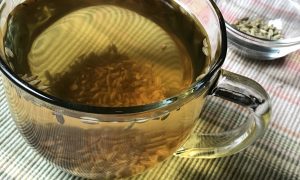It is essential that a lactating mother’s diet is a well constituted balanced and nutritious diet, said an expert
Lactation describes the secretion of milk from the mammary glands and the period of time that a mother lactates to feed her young. After you give birth, good nutrition is even more important than during your pregnancy. It can make a difference in the quality of your breast milk and affect how quickly your body rebounds from childbirth.
“Mothers who are breastfeeding — lactating mothers — don’t need to eat special foods. But it is essential that a lactating mother’s diet is a well constituted balanced and nutritious diet. In this period apart from calories and proteins, there is increased need of calcium and iron. Therefore, keep certain points in mind,” said Swati Kapoor, a nutritionist who consults on Practo.
Lactation describes the secretion of milk from the mammary glands and the period of time that a mother lactates to feed her young. After you give birth, good nutrition is even more important than during your pregnancy. It can make a difference in the quality of your breast milk and affect how quickly your body rebounds from childbirth.
“Mothers who are breastfeeding — lactating mothers — don’t need to eat special foods. But it is essential that a lactating mother’s diet is a well constituted balanced and nutritious diet. In this period apart from calories and proteins, there is increased need of calcium and iron. Therefore, keep certain points in mind,” said Swati Kapoor, a nutritionist who consults on Practo.
Energy
It takes extra energy to produce breast milk. Mothers need an additional 400 calories on an average per day beyond their normal health requirement.
Protein
The Recommended Dietary Allowance for protein during lactation includes an additional 15 grams per day (RDA of 65 grams per day) in the first six months after childbirth and an additional 12 grams per day (RDA of 62 grams per day) thereafter.
Fluids
Adequate fluids to stay hydrated include 2 to 3 liters per day, or at least eight 8-ounce servings, and can include water, milk or soy milk, decaffeinated beverages etc. Limit caffeine to the equivalent of one cup of coffee a day to avoid causing the baby agitation or difficulty in sleeping.
Vitamins and Minerals
Food supplies the vitamins and minerals lactating mothers especially need, such as calcium, vitamin A, vitamin C, vitamin D and zinc. Vitamin and mineral supplements do not replace a healthful diet, but some breastfeeding women might need a multivitamin and mineral supplement in addition to eating a well-balanced diet.
Special consideration in lactating mother’s diet
Eating well while breastfeeding entails getting the right balance of good (and good for you) food. Try to get the following each day:
1. Protein: Three servings
2. Calcium: Five servings (that’s an increase from your pregnancy requirement of four)
3. Iron-rich foods: One or more servings
4. Vitamin C: Two servings
5. Green leafy and yellow vegetables, yellow fruits: Three to four servings
6. Other fruits and veggies: One or more servings
7. Whole-grain and other concentrated complex carbohydrates: Three or more servings
8. High-fat foods: small amounts – you don’t need as much as you did during pregnancy
9. Eight cups of water, juice, or other non caffeinated, non-alcoholic beverages
10. DHA-rich foods to promote baby’s brain growth (look for it in wild salmon and sardines, as well as DHA-enriched eggs).
Lactation is a very important and beautiful phase in both the mother’s and the child’s life. This is a phase when the bonding between mother and the child is built and strengthened. Mother’s milk is vital for the child’s growth and the importance of the right nutrition at this point is unquestionable.





































